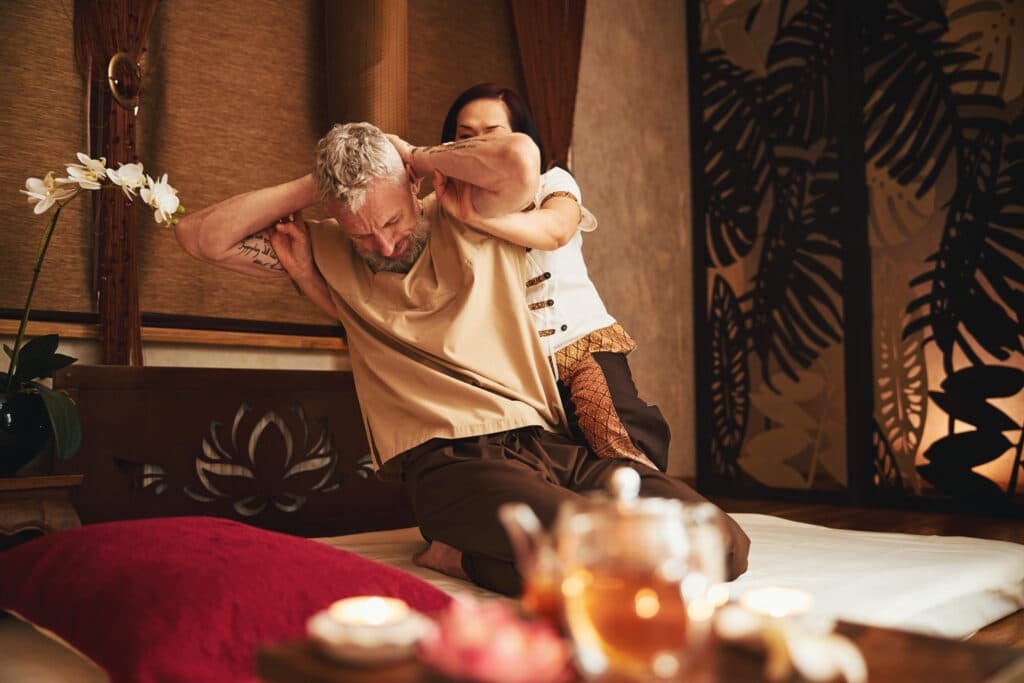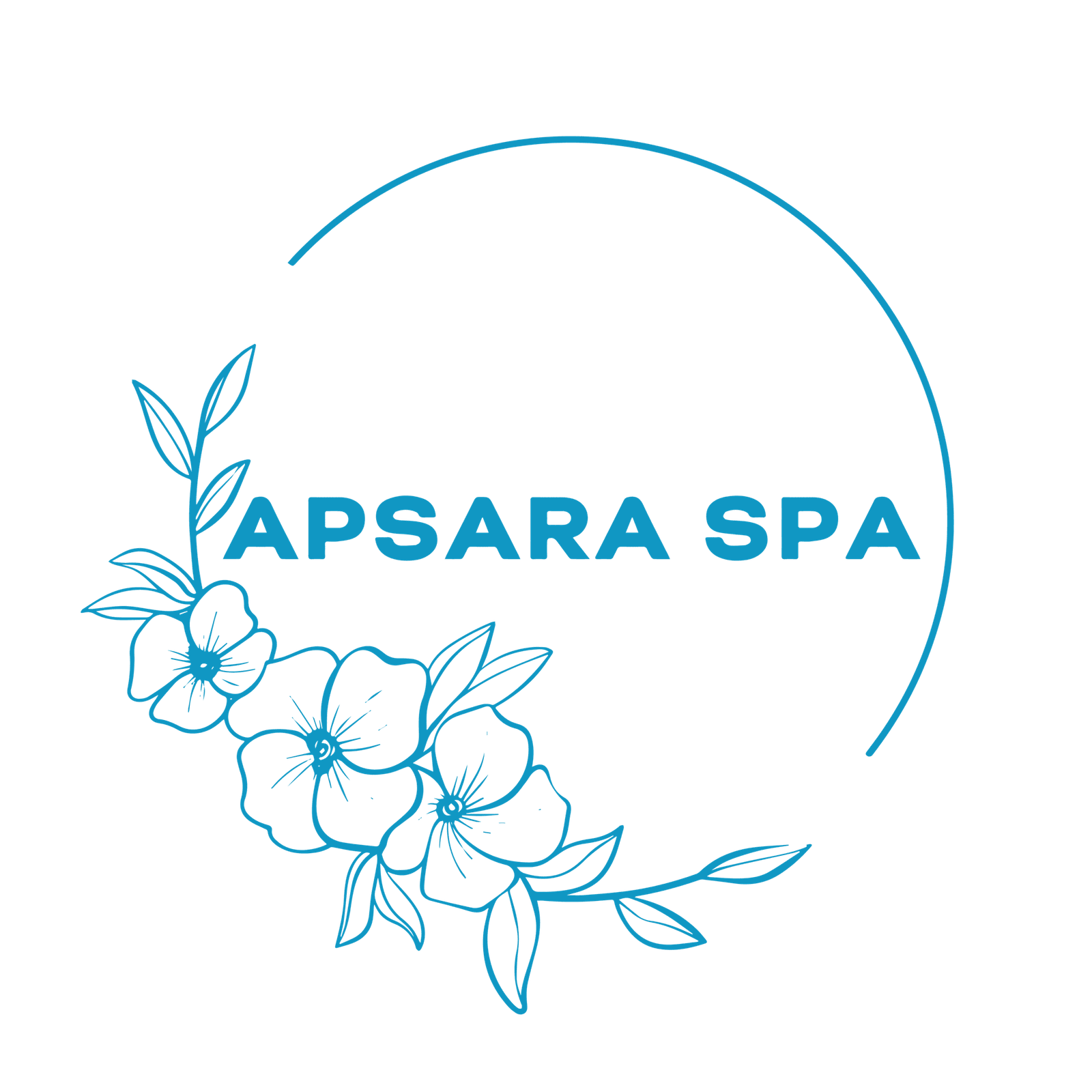49/44-45, Boat avenue, Cherngtalay, Thalang, Phuket - Thailand.
The History and Origins of Thai Massage: A Cultural Journey to Wellness
Uncover the history of Thai massage in Phuket with Apsara Spa. Experience traditional techniques rooted in Thai culture, delivering authentic wellness through ancient healing practices.
Table of Contents
Experience the History of Thai Massage: A Journey Through Thailand’s Healing Heritage
When you experience a traditional Thai massage in Phuket, you’re engaging with a practice that spans over two millennia of history, culture, and healing wisdom. Thai massage is not just a form of physical therapy; it is a reflection of Thailand’s rich heritage, blending spirituality, medicine, and art. Understanding the history of Thai massage adds depth to every session, connecting you to a tradition that has stood the test of time.
At Apsara Spa Phuket, we honour this legacy by offering authentic Thai massage experiences that reflect the cultural significance and therapeutic power of this ancient practice.

The Origins of Thai Massage: A Journey Through Time
The origins of Thai massage date back over 2,500 years, with its roots deeply intertwined with ancient Indian, Chinese, and Southeast Asian healing traditions. It is believed that Jivaka Kumar Bhaccha, a renowned physician to the Buddha, founded Thai massage. Revered as the “Father of Medicine” in Thailand, his teachings are still honoured in Thai massage schools and ceremonies today.
This therapeutic practice evolved alongside the spread of Buddhism, blending Indian Ayurvedic principles with Chinese acupressure techniques and indigenous Thai knowledge. The result is a unique healing system that works on the body’s energy lines, known as “Sen”, to restore balance, flexibility, and vitality.
Influences Behind Traditional Thai Massage
Traditional Thai massage is a product of multiple cultural and medical influences:
- Ayurvedic Medicine: From India, the concept of balancing energies (similar to doshas) and using touch to stimulate healing formed a foundational influence.
- Chinese Medicine: The idea of meridians or energy pathways was integrated into Thai massage through Chinese acupressure techniques, focusing on restoring Qi (Chi) flow in the body.
- Buddhist Philosophy: Mindfulness, compassion, and meditation are deeply embedded in Thai massage. Practitioners are often trained to approach each session with a meditative focus, promoting holistic healing for both body and mind.
This fusion of disciplines makes Thai massage a comprehensive therapy that addresses physical, mental, and energetic well-being — an approach that continues to thrive in Phuket’s spa culture today.
Cultural Significance of Thai Massage in Thailand
In Thailand, massage is more than just therapy; it’s a cultural ritual and an integral part of daily life. It is common for families to practise basic massage techniques at home for health maintenance, bonding, and relaxation.
Additionally, Thai massage is preserved and respected within Thailand’s temple culture, particularly at Wat Pho in Bangkok, considered the spiritual home of Thai massage education. Here, inscriptions and stone carvings detail ancient techniques, ensuring that the tradition is passed on to future generations.
Thai massage ceremonies, known as Wai Khru, honour teachers and ancestral practitioners, reflecting the deep reverence for the craft. This cultural reverence is what makes experiencing Thai massage in Phuket not just a spa treatment, but a connection to Thailand’s heritage.
Traditional Techniques Still Practised Today
At Apsara Spa Phuket, we continue to practise techniques rooted in tradition, including:
- Rhythmic Compression: Gentle pressing along the body’s energy lines to unblock stagnation and improve circulation.
- Assisted Stretching: Similar to passive yoga, stretches increase flexibility, joint mobility, and energy flow.
- Acupressure: Applying focused pressure to specific points to relieve tension and pain.
- Mindful Breathing and Meditation: Therapists often employ a mindful, meditative approach to create a calming environment.
These time-honoured techniques make Thai massage distinct from other global massage forms; it’s often described as “lazy man’s yoga” for its combination of stretches and movements.
Health and Wellness Benefits Rooted in Tradition
The enduring popularity of Thai massage is not just cultural; it’s also due to its broad spectrum of benefits:
- Improved Flexibility and Mobility
- Reduced Muscle Tension and Pain
- Enhanced Circulation
- Boosted Energy and Vitality
- Better Posture and Body Alignment
- Stress Reduction and Mental Clarity
Whether you’re seeking recovery, relaxation, or energy balancing, the benefits of Thai massage in Phuket are both immediate and lasting, backed by centuries of practice.
Why Experience Traditional Thai Massage in Phuket at Apsara Spa
At Apsara Spa Phuket, we deliver more than a massage; we provide a cultural experience steeped in history and authenticity. Guests choose us because:
- Expertly Trained Therapists: Our practitioners are skilled in traditional Thai massage techniques passed down through generations.
- Authentic Approach: We honour the historical roots of Thai massage, ensuring each session reflects the integrity of this healing art.
- Serene Setting: Our tranquil spa environment complements the mindful, meditative nature of Thai massage.
Experiencing Thai massage at Apsara Spa is not just about relaxation — it’s about connecting with Thailand’s timeless wellness heritage.
Discover the Art and Heritage of Thai Massage
Understanding the history of Thai massage enriches every treatment, transforming it from a routine spa visit into a cultural and healing journey. Whether you’re a first-time visitor or a seasoned spa enthusiast, discovering this ancient tradition in Phuket is a must.
Book your traditional Thai massage at Apsara Spa Phuket today and immerse yourself in a wellness experience that bridges ancient wisdom with modern comfort.
